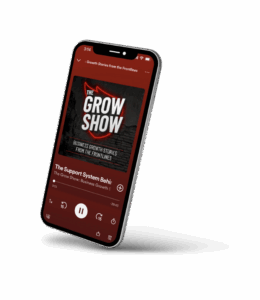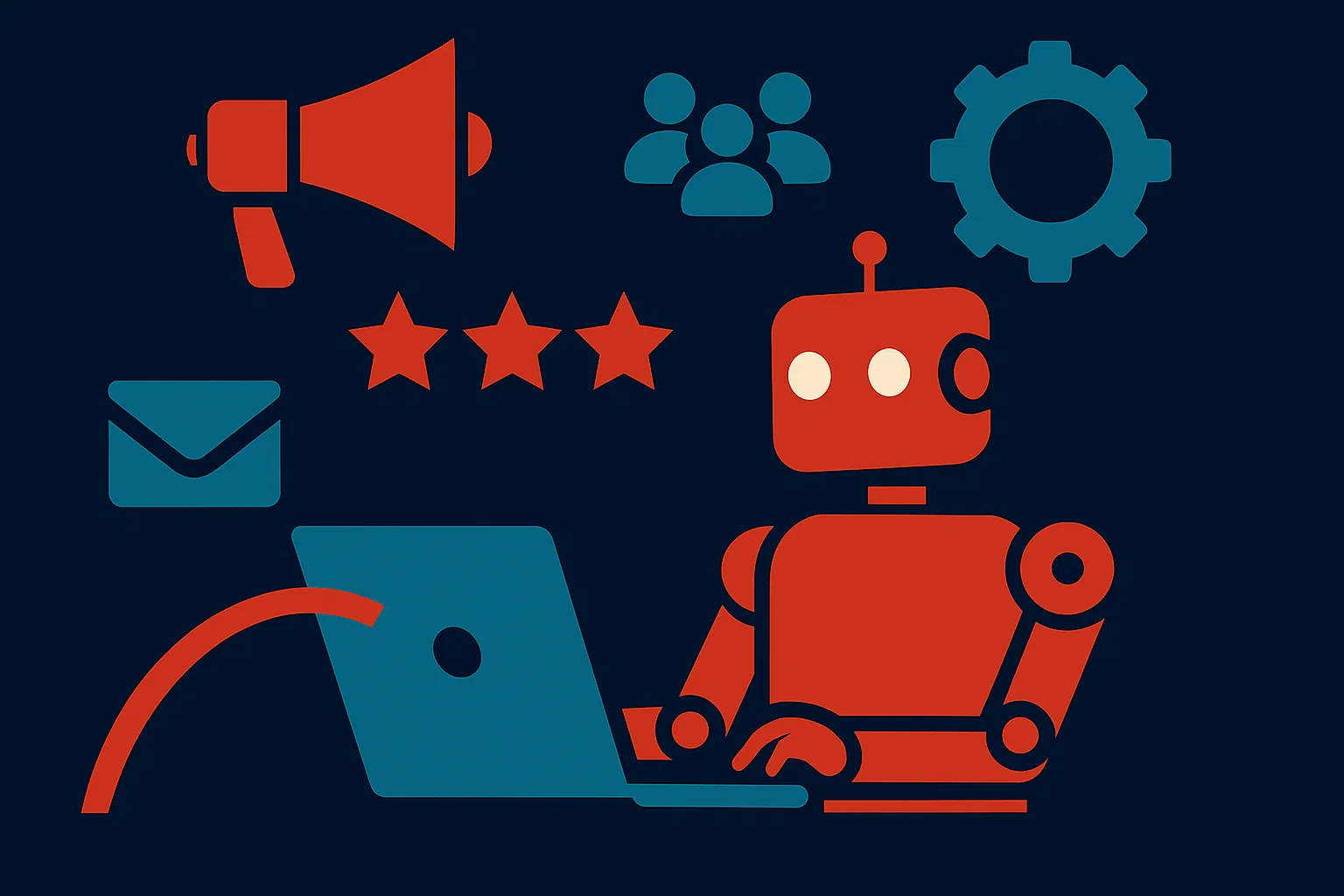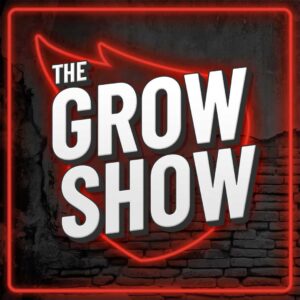In a rapidly evolving digital landscape, businesses are constantly seeking innovative strategies to enhance their growth potential. B2B marketing automation has emerged as a powerful tool that streamlines marketing processes and drives significant business growth. By leveraging technology to automate marketing tasks, companies can focus on what truly matters: building relationships and closing deals.
Contents
- 1 Understanding B2B Marketing Automation
- 2 The Evolution of Marketing Automation
- 3 Key Features of B2B Marketing Automation
- 4 The Impact of Marketing Automation on Business Growth
- 5 Implementing B2B Marketing Automation
- 6 Measuring Success in Marketing Automation
- 7 Challenges of B2B Marketing Automation
- 8 Future Trends in B2B Marketing Automation
- 9 Conclusion
Understanding B2B Marketing Automation
At its core, B2B marketing automation refers to the use of software platforms and technologies to automate repetitive marketing tasks. This includes everything from email marketing and social media posting to lead generation and customer segmentation. The goal is to enhance efficiency, improve targeting, and ultimately drive conversions.
The Evolution of Marketing Automation
Marketing automation has evolved significantly over the years. Initially, it was primarily about automating email campaigns. However, today’s platforms offer a comprehensive suite of tools that encompass various aspects of marketing. This evolution has allowed businesses to adopt a more strategic approach, integrating automation into their overall marketing strategy.
Key Features of B2B Marketing Automation
Modern B2B marketing automation tools come equipped with a variety of features designed to enhance marketing efforts. Some key features include:
Email Campaign Management: Automate the creation, scheduling, and sending of targeted email campaigns.
Lead Scoring: Assign scores to leads based on their interactions with your brand, helping prioritize follow-ups.
Analytics and Reporting: Track campaign performance in real time, allowing for data-driven decision-making.
These features not only save time but also provide valuable insights into customer behavior, enabling businesses to tailor their marketing strategies effectively.
The Impact of Marketing Automation on Business Growth
Implementing marketing automation can lead to transformative results for businesses. By streamlining processes and enhancing targeting, companies can experience significant growth in various areas.
Enhanced Lead Generation
One of the most notable benefits of B2B marketing automation is its ability to enhance lead generation efforts. Automated systems can capture leads through various channels, such as landing pages, social media, and webinars. Once captured, these leads can be nurtured through personalized content tailored to their interests and needs.
Furthermore, automation allows for the segmentation of leads based on their behavior and engagement levels. This targeted approach ensures that the right message reaches the right audience, significantly increasing the chances of conversion.
Improved Customer Engagement
Engaging with customers effectively is crucial for any business aiming for growth. Marketing automation facilitates ongoing communication with leads and customers through personalized emails, targeted content, and timely follow-ups. By delivering relevant information at the right time, businesses can foster stronger relationships with their audience.
Additionally, automated systems can track customer interactions, providing insights into their preferences and behaviors. This data can be leveraged to create more personalized marketing strategies, further enhancing customer engagement.
Increased Efficiency and Productivity
Time is a valuable resource in the business world. B2B marketing automation allows teams to focus on high-impact activities rather than getting bogged down by repetitive tasks. By automating processes such as email marketing, social media posting, and reporting, teams can allocate their time and resources more effectively.
This increased efficiency not only boosts productivity but also allows for a more agile marketing approach. Teams can quickly adapt to changes in the market or customer behavior, ensuring that their strategies remain relevant and effective.
Implementing B2B Marketing Automation
While the benefits of B2B marketing automation are clear, successful implementation requires careful planning and execution. Here are some key steps to consider when integrating automation into a marketing strategy.
Define Clear Goals
Before diving into automation, it’s essential to define clear goals. What does the business hope to achieve through marketing automation? Whether it’s increasing lead generation, improving customer engagement, or enhancing brand awareness, having specific objectives will guide the implementation process.
Setting measurable goals also allows for tracking progress and evaluating the effectiveness of the automation strategy over time. This data-driven approach ensures that marketing efforts align with overall business objectives.
Choose the Right Tools
With a plethora of marketing automation tools available, selecting the right one can be daunting. Businesses should consider their specific needs, budget, and the features offered by various platforms. It’s crucial to choose a tool that integrates seamlessly with existing systems and provides the necessary functionalities to achieve defined goals.
Additionally, many platforms offer free trials or demos, allowing businesses to explore their options before making a commitment. Taking advantage of these opportunities can help ensure the chosen tool aligns with the company’s needs.
Train Your Team
Successful marketing automation implementation relies heavily on the team’s ability to utilize the chosen tools effectively. Investing in training and resources for team members is essential to maximizing the benefits of automation.
Training should cover not only how to use the tools but also best practices for creating effective campaigns, analyzing data, and optimizing strategies. A well-trained team can leverage automation to its fullest potential, driving significant growth for the business.
Measuring Success in Marketing Automation
To truly understand the impact of marketing automation on business growth, it’s essential to measure success through key performance indicators (KPIs). These metrics provide valuable insights into the effectiveness of marketing efforts and help identify areas for improvement.
Key Performance Indicators to Track
Some of the most important KPIs to consider when measuring the success of marketing automation include:
Conversion Rates: Track the percentage of leads that convert into customers to evaluate the effectiveness of marketing efforts.
Lead Generation: Monitor the number of leads generated through automated campaigns to assess growth.
Customer Engagement: Analyze engagement metrics, such as open rates and click-through rates, to gauge the effectiveness of communication strategies.
By regularly monitoring these KPIs, businesses can make data-driven decisions to optimize their marketing automation strategies and drive continued growth.
Adjusting Strategies Based on Data
Data analysis is a crucial component of any successful marketing automation strategy. By examining performance metrics, businesses can identify trends, successes, and areas that require improvement. This ongoing analysis allows for the adjustment of strategies to better align with customer needs and market demands.
For instance, if certain email campaigns are underperforming, businesses can analyze the content, timing, and segmentation to determine what changes may improve results. This iterative approach ensures that marketing efforts remain effective and relevant.
Challenges of B2B Marketing Automation
While B2B marketing automation offers numerous benefits, it’s not without its challenges. Understanding these potential hurdles can help businesses navigate the implementation process more effectively.
Overcoming Resistance to Change
One of the most significant challenges businesses may face when implementing marketing automation is resistance to change. Team members may be accustomed to traditional marketing methods and hesitant to adopt new technologies. To overcome this resistance, it’s essential to communicate the benefits of automation clearly and involve team members in the decision-making process.
Providing training and resources can also help alleviate concerns and foster a culture of innovation. When team members understand how automation can enhance their work and contribute to business growth, they are more likely to embrace the change.
Data Management and Integration
Effective marketing automation relies on accurate and organized data. However, many businesses struggle with data management and integration, particularly if they have multiple systems in place. Ensuring that data is clean, accurate, and easily accessible is crucial for successful automation.
Investing in data management tools and processes can help streamline this aspect of marketing automation. Additionally, choosing automation platforms that offer seamless integration with existing systems can simplify data management and enhance overall efficiency.
Future Trends in B2B Marketing Automation
As technology continues to evolve, so too does the landscape of B2B marketing automation. Staying ahead of emerging trends is essential for businesses looking to leverage automation for growth.
Artificial Intelligence and Machine Learning
Artificial intelligence (AI) and machine learning are set to play a significant role in the future of marketing automation. These technologies can analyze vast amounts of data to identify patterns and predict customer behavior, enabling businesses to create more personalized marketing strategies.
AI-driven automation can also enhance lead scoring, allowing for more accurate prioritization of leads based on their likelihood to convert. As these technologies become more accessible, businesses that embrace them will likely gain a competitive edge in the market.
Increased Focus on Personalization
Personalization has become a key driver of customer engagement and loyalty. As B2B marketing automation evolves, businesses will increasingly focus on delivering personalized experiences at every stage of the customer journey. This includes tailored content, targeted messaging, and customized offers based on individual preferences and behaviors.
Investing in advanced segmentation and targeting capabilities will be crucial for businesses looking to enhance their personalization efforts. By leveraging data and automation, companies can create meaningful connections with their audience, driving growth and loyalty.
Conclusion
B2B marketing automation is not just a trend; it is a transformative approach that can significantly impact business growth. By streamlining processes, enhancing lead generation, and improving customer engagement, automation empowers businesses to focus on strategic initiatives that drive results.
While implementing marketing automation may present challenges, the benefits far outweigh the hurdles. By defining clear goals, choosing the right tools, and investing in training, businesses can successfully integrate automation into their marketing strategies.
As the marketing landscape continues to evolve, staying informed about emerging trends and technologies will be essential for businesses looking to leverage automation for sustained growth. Embracing the power of B2B marketing automation can lead to a brighter, more prosperous future for businesses willing to adapt and innovate.
Take Your B2B Marketing to the Next Level with Abstrakt
Ready to harness the transformative power of B2B marketing automation for your business growth? Abstrakt is here to guide you through the journey of enhancing your lead generation and customer engagement strategies. With our expertise in generating high-quality leads, we are dedicated to helping businesses in the US and Canada achieve remarkable growth. Discover how our commitment to your success can translate into exceeding your business expectations.

Madison Hendrix
Madison has worked in SEO and content writing at Abstrakt for over 5 years and has become a certified lead generation expert through her hours upon hours of research to identify the best possible strategies for companies to grow within our niche industry target audiences. An early adopter of AIO (A.I. Optimization) with many organic search accolades - she brings a unique level of expertise to Abstrakt providing helpful info to all of our core audiences.
- Madison Hendrix#molongui-disabled-link
- Madison Hendrix#molongui-disabled-link
- Madison Hendrix#molongui-disabled-link
- Madison Hendrix#molongui-disabled-link








